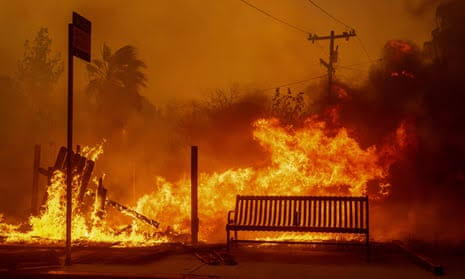With damages estimated to reach an incredible $52 billion, Los Angeles is currently facing one of the most devastating wildfires in its history. In addition to forcing many to leave, the fire has destroyed countless houses and businesses across more than 28,000 acres of land.
This catastrophe is more than just a fire; it’s a long-term calamity. The area’s once-thriving tourism business may suffer a significant setback, and experts warn that smoke exposure from the fires might have long-term negative health effects.
President Joe Biden has promised full federal support for the next six months, acknowledging the seriousness of the situation. He promised that the government would pay for temporary housing, first responder salaries, and debris cleanup during a White House briefing. He underlined that the goal of this pledge is to lessen the strain on impacted areas.
Resources are being made available to combat the fires and aid in the reconstruction of the affected areas by the intervention of federal agencies such as FEMA and even the Pentagon. The problems are far from done, though, as winds make containment measures more difficult.
Rescue and recovery are the main priorities right now, but the financial impact on companies and the psychological toll on families are also very real. It calls for increased readiness going forward by serving as a reminder of how environmental neglect and climate change can intensify natural disasters.
With a national effort to support its recovery, Los Angeles is currently relying on optimism and resiliency.





















































